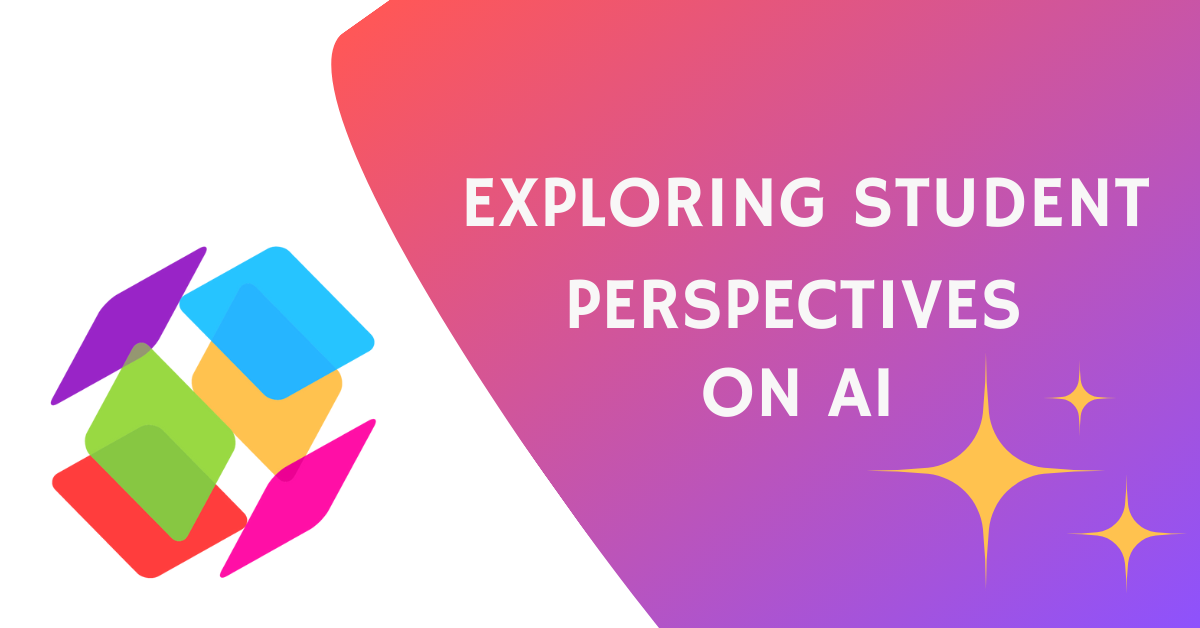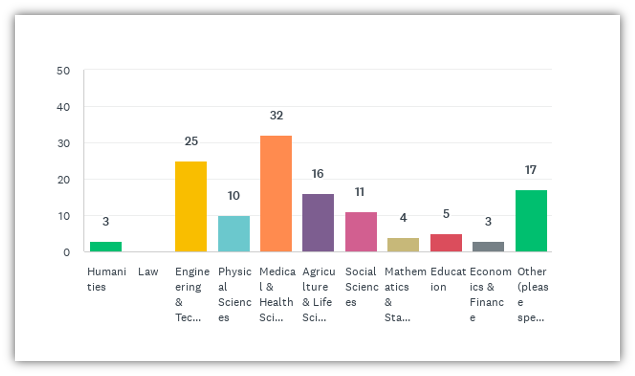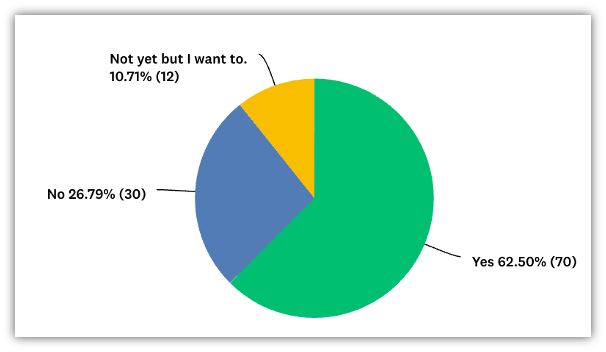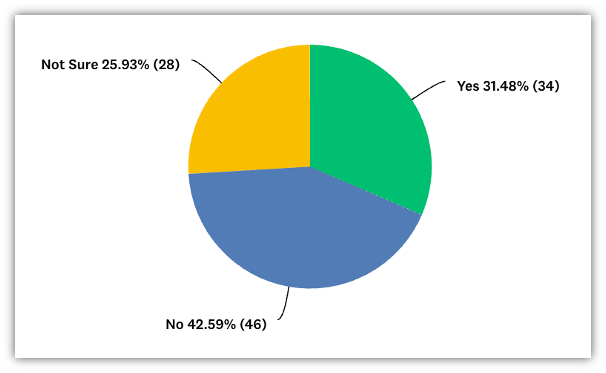Exploring Student Perspectives on AI

In March 2024, Papers conducted an exploratory survey among our student customers to gauge their experiences and attitudes towards the integration of Artificial Intelligence (AI) in research and education.
We were elated by the diverse range of insights and thoughtful feedback we received. Students shared their experiences generously, providing us with a wealth of information. The key takeaway from the survey is that while students are actively incorporating AI into their research and educational activities, many remain uncertain about their full understanding and optimal use of these advanced tools.
Here, we present a snapshot of the more intriguing findings and opinions from our survey.
Who Responded?
We received responses from 127 self-identified students, revealing fascinating insights into their academic pursuits and use of AI. Among these respondents, a significant majority (76%) are graduate students working towards a doctoral degree, with the most common disciplines in medical and life sciences, followed closely by engineering disciplines.

Geographically, 35% of the respondents are based in the USA, with Germany (6%), South Korea (5.5%), and Canada (5.5%) being the next most common locations.

When we asked about the nature of their academic programs, students were almost equally split between those who are engaged primarily in research and those balancing a mix of research and coursework.
Who is Using AI?
We were curious what AI-powered software and tools students were using and for what purpose. The replies revealed that 63% of the students were already using AI software in their research and education. Additionally, another 11% reported that they weren’t using AI yet but wanted to start.

We also asked if students believed that they had the knowledge and skills to understand and take advantage of AI tools. 60% of students replied yes, 23% were unsure and only 16% said that they didn’t have enough knowledge.

“I am usually good at understanding how to use technology. However, it is difficult to have confidence in AI outputs. It is also difficult to understand how AI works without understanding the black box underneath.”
“Unsure because it can be overwhelming to find the right tools or use for the tools among a growing set of options, it would be really good if that process could become a bit less time consuming somehow.”
Which AI Tools are Popular?
ChatGPT topped the list with 67% of students reporting that they used it for a wide range of activities. These include writing documents, correcting grammar, assisting in coding, brainstorming, and learning and researching topics.
The next most popular tool was CoPilot at 17%, although it wasn’t clear if students were referring to Microsoft’s CoPilot or GitHub’s. A number of other resources were listed, the most frequent ones including Papers’ AI Assistant, DeepL, and Elicit.ai.
Here is a sample of the responses we received:
“I’ll use ChatGPT to just have something to talk through my ideas with.”
“I use it mostly to correct for grammatical errors or to clarify areas of learning. For instance I had asked chat GPT if overt and subclinical hypothyroidism could be present in either primary, secondary, or tertiary hypothyroidism. It was able to give me a clear answer without me having to go back and dig through my notes. Obviously, I know to double check everything from chat GPT.”
“Since my students use ChatGPT, I try to work with it and not against it. We use it for prompts or other ideation tasks and have open discussions about how to use it in a responsible and ethical manner.”
“Mostly like a wikipedia article in that I wouldn’t cite AI or rely on the info from AI (at this time) but would then look up the sources from which the AI engine drew from. Can use AI to synthesize large amounts of info. Also use AI in some quantitative analysis of field data.”
The Future of Research Includes AI
The survey underscored that students are enthusiastic adopters of AI technologies, yet they recognize the necessity of validating AI-generated results and the need for caution. This wary optimism underscores the potential and the pitfalls of integrating AI into research and learning.
Using the data from this survey, coupled with data from other surveys we found, we have written a discussion piece on the perception of AI in academia – including data from students, professors, and academic administrators. We encourage you to read the full paper here.
Looking ahead, we aim to extend this survey and our analysis to a broader research audience to gain deeper insights into the needs and concerns of our users. The Papers team is committed to supporting researchers in their quest for new discoveries, recognizing that AI will play an increasingly pivotal role in the research landscape. We are excited to join our customers in witnessing how AI will shape the future of scientific exploration.
Curious for more? Read our discussion piece on the perceptions of AI in academia in our in-depth summary: AI in Academia: Present Trends and Future Insights